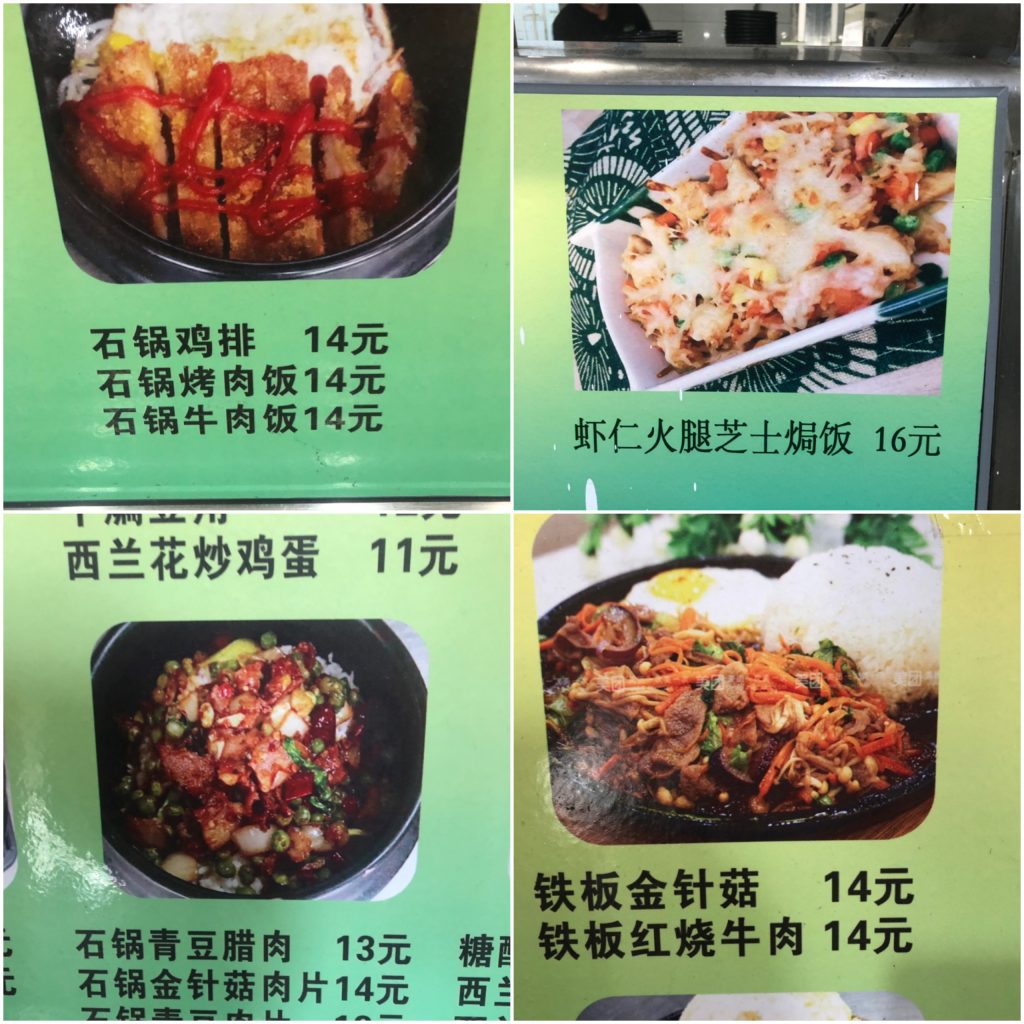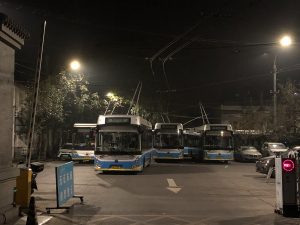I’m A City Person
Throughout my entire life, I have always considered myself a city person. Growing up in the Longfellow neighborhood in Minneapolis, I have identified a densely populated area as a better fit for me than a sparsely populated one. Because of this personal preference, I was very excited to go to Beijing. After the first week of actually being here in Beijing, my excited anticipations have been affirmed, and my curiosity has been boosted.
On Friday at 3:10 PM (2:10 AM back in MN) 22 of us landed in the Beijing International Airport. After spending a week as a group of 22 in India, our missing duo found us and we became one again. Now, I only mean “one” in a partially figurative sense because when Joel and Noah appeared to pick us up, we literally became one for a couple of seconds with the biggest group hug I have ever been a part of. That night we got dinner all together and I could feel wholeness that we had been missing return to our spirits. The very next day we were introduced to our “Chinese Buddies.” They are students at the University we are staying in. They took us in small groups to the mall to buy some warm clothes in preparation for the cold weather of China’s winter, something I was excited about after the heat of Africa and India. When we arrived at the mall I was immediately struck with a feeling of familiarity. It was a mall. Besides the Mandarin characters, it wouldn’t have been out of place if it was in downtown Minneapolis. Growing up 20 mins from the Mall of America, I have come to learn that malls are unavoidably loud. Turns out, that unavoidable loudness is avoidable. This mall was not much louder than the average public park. Maybe I’m just used to the MOA with its amusement park in the center, but I was still shocked at the level of volume maintained by that many people in a shared space. The rest of the week was accompanied by a similar feeling of familiarity.
Outside of our trips to places the likes of which I’ve only seen in movies–like an Emperor of the Qing dynasty’s Summer Palace–our stay so far at Capital Normal University campus simulates the school environment I am accustomed to well.

We have:
- Daily classes switching between our education classes and our China-specific political economy class led by resident professor David Moser.
- Meal cards that give us access to the student dining hall where there is an incredibly varied selection of amazing meals cooked to order or a la carte for under two dollars a meal. (Take that Bon App)
- Dorm rooms that are comparable to Olaf’s
Our location in the middle of the Haiden District also allows enhanced freedom to explore the city in our free time, which I have only just begun to take advantage of with my “lost in the city count” still in the single digits. In many ways, this fusion of academia and a city combines the two environments I have spent most of my life in. The similarities are comforting and the differences are enlightening.
Before coming to Beijing, I wasn’t sure what to expect. I knew very few concrete things about China and fewer about Beijing. My ignorance of China seems to be shared with many other people in the US. I believe a pretty good example of the average US perspective of China is accurately represented in one episode of the popular show The Office. In this episode Michael Scott, the very ignorant, but well-intentioned, regional manager of the office, reads an article on China while in a waiting room. He comes into the office with immense fear of China and how quickly its economy is growing. He gets in a debate with an accountant, Oscar, about whether China does pose a threat to the US. Oscar argues that China is urbanizing fast but it’s still developing and is not a pressing worry. The debate ends with Michael saying something about how the debate they just had is what makes the US so special. In the context of the show, it’s clear that Oscar was much better prepared to debate the topic and Michael’s comment was a Hail Mary. By appealing to a shared national identity, Micahel covers his lack of information and effectively betrays his stance while still framing it as a victory and not a loss. I think the sentiment of both sides, and the ending, highlight common perspectives. I believe most Americans know China’s economy is growing and it is poised to take over the US sometime in the not too distant future with the world’s highest GDP, but those same people often don’t find China that relevant to them and their future. China does not take up much space in the United States collective consciousness unless we are talking about the current trade war or issues related to why I have to use a VPN to upload this blog. In general, this is where I was, too, before we arrived.
Minneapolis is home to 400,000 people. The combined metro area of Minneapolis, St. Paul, and their respective suburbs clocks in at around 2 million. New York City is home to a cool 9 million people. Beijing is home to 20 million. I knew population differences would be fundamental in understanding China’s political economy, but these numbers never hit me. Maybe now reading this they haven’t hit you either so I’ll type out something David said in class. The last census of China had an error margin of about 4%. When you are talking about 1.3 billion people, that can be read as “The population of China is 1.3 billion people plus or minus Germany.” The population of Beijing is only 20 million because it’s been capped there. This does not mean the government doesn’t want people to move in from the countryside, they do. The solution that they have been using and plan to continue with is the creation of Mega Cities. These Mega-Cities can have populations far exceeding 20 million. Of course, these megacities need mega infrastructure, something China is prepared to provide. Plans are underway to build full cities of infrastructure on the outskirts of Beijing, cities that will hold populations to the scale of Manhattan Island. This urban development has all been quite recent. In the last three years alone, China has used more cement than the United States did during the entire 20th century. The parallel that fact draws is quite merited; China is industrializing as the US did in the 20th century, but on a timescale two orders of magnitude smaller.
When I looked at China before this class, I saw it as a country claiming a spot as a world economic power; I have learned that the majority of Chinese citizens view it as a reclamation of its rightful spot as a world economic power. Before the western world forced its way into the Chinese market with opium, China had, by most estimates, the largest GDP. That makes some sense when you remember just how many people live here. The Opium Wars were detrimental to this prosperity, and China sat for a while barely unified and with a greatly reduced part to play on the world stage. During this time the United States and other western powers had industrialized, urbanized, created global organizations and trade unions.
Almost a century after the last opium war, China began to rebound. In order to reclaim its top spot, China used manufacturing to generate great wealth and is investing heavily in its future. They are industrializing at incredible rates. Uncommon to popular belief China is not communist, despite the name of its political party. The economics of China is better described by labeling China as a “Leninist Capitalist State.” The government does have immense power and can create, maintain, and eliminate markets as they please, but they do not own the means of production. The result of these factors is a country that skipped all the waiting on the technology of the 20th century. They are building an industrialized country from the ground up with all the technology of the 21st century.

When you have this in mind, suddenly differences I took for granted pop out more. Everyone, or at least the vast majority, pay with their phone here. There is no bother with cards or cash and QR codes rule all transactions. That’s convenient. There are bikes for rent everywhere. Unlike the “nice ride” of my hometown, they are not centralized in specific stations. They have a device that locks the back wheel and you unlock by scanning, you guessed it, a QR code on the back. That’s convenient. Both of these examples are services provided by private companies, but the market is facilitated by the party. It’s differences like this that exemplify a society that is premeditated. You can bet that the city the government is building on the outskirts of Beijing for urban overflow will be carefully planned to maximize efficiency.
So, is Michael right? Should we be scared of China? After all, they are beginning to export the manufacturing jobs that helped boost them up, expand into every other sector, create their own international trade deals, and have a radically different political framework. Also, as of right now, our governments don’t get along. Not to mention the very restricted internet access that requires the use of a VPN to post this blog. It is likely China will continue to grow, and grow fast. It just makes sense for a country that large to have a bigger role on the international stage. One thing is for sure, the United States collective consciousness will not be able to operate with a view of China akin to Oscar’s outdated information or Michael’s incoherent and patriotic closing statement. We all have a lot to learn. I am excited.
— Patric Carlsen ’21
You must be logged in to post a comment.